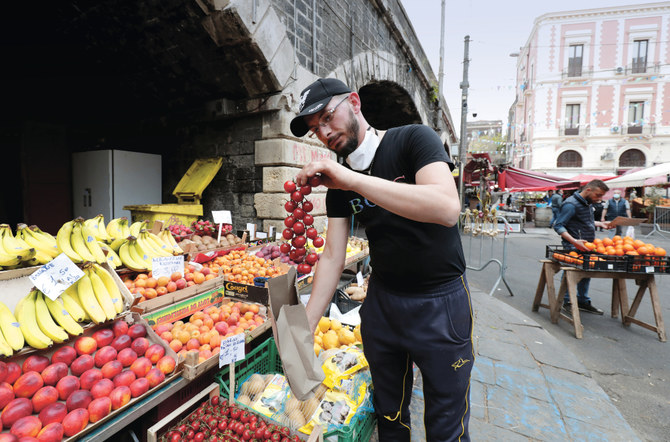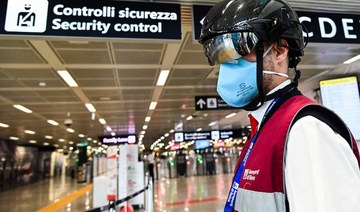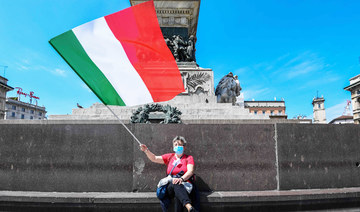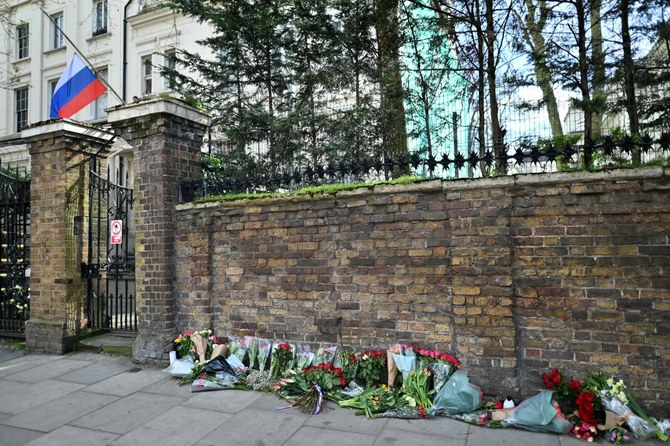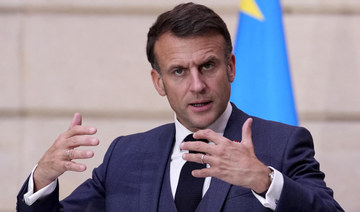ROME: Italy’s agriculture minister has proposed regularizing nearly 500,000 undocumented migrants so they can do seasonal farm work picking crops this year, as no other workforce is available due to the coronavirus pandemic.
Teresa Bellanova’s plan would give illegal migrants permits, valid for six months and renewable.
She has threatened to resign if the Cabinet does not approve the plan, which she said is “vital” to keeping the agricultural sector alive.
Bellanova, representing the Italia Viva centrist party, has received criticism from within the government over the issue.
During two months of lockdown, thousands of unregistered migrants have toiled in fields all over the country to secure supplies of fresh food for Italians, all while risking arrest if caught by the police.
“During lockdown, when nobody accepted to go to work because they were afraid to get infected or simply couldn’t reach the fields because all public transport was blocked, the food on our table has been coming from those fields and collected by those ‘illegal’ hands,” Giuseppe Provenzano, minister for southern Italy, told Arab News.
“I believe the time has come for us to hand over those rights that have been denied to those who work in our fields.”
Backing Bellanova’s proposal, Sandra Zampa of the Democratic Party said: “We need to give something back to those who are ‘invisible’.”
The proposal would also grant migrants the right to vote in local and regional elections that are supposed to be held this month.
Since coronavirus clusters could go unchecked now that the lockdown has been eased, Bellanova believes that forcing migrants to hide from the authorities is a medical as well as an ethical issue.
“It could be a massacre if we don’t manage to check, to know who is actually working,” she told Arab News.
“Look at Cerignola, a farming town in Puglia where tomatoes are rotting waiting to be picked. There are at least 3,000 people packed and working there.”
Experts at the Agriculture Ministry said legalizing farm workers is practical. As spring crops ripen, the 100,000 Romanian pickers who usually travel to Italy annually cannot do so this year due to coronavirus travel bans.
“Italy now needs the Indians, Pakistanis, Sri Lankans, Filipinos and Africans who arrived here illegally, mainly from the shores of Libya, to fill that gap. Making them legal helps that,” said a government source.
“The sooner we pass this law, the quicker we sort the issue out. That’s the only way to save the harvest.”
Bellanova’s proposal would also help with care for the elderly. When the outbreak began in Italy, most foreign carers returned to their country of origin, mainly to Romania and Ukraine. Nobody knows when restrictions will be lifted and they will be able to travel again to Italy.
“We have so many elderly who need help. They refuse to go to care homes as they know that in the past weeks elderly living there have died like flies during the peak of COVID-19. So they need to be helped in their homes, but now we have no ‘legal’ carers available, and we’re stuck,” said Cosenza Mayor Mario Occhiuto.
He added that Bellanova’s plan would legalize about 100,000 illegal migrants who work as home carers.
Many lost their jobs during Italy’s lockdown, and with it their permits to stay, which are dependent on employment.
Matteo Salvini, leader of the far-right Northern League party, has accused the government of being more concerned with migrants’ rights than jobless Italians. “It’s madness. We’ll try to stop it (Bellanova’s plan) by any means, inside and outside parliament,” he said.
Salvini believes that the proposal is a ploy by the governing parties to get more votes in the upcoming local and regional elections from the newly legalized migrants.
His hardline position is backed by the Five Star Movement, which supports the government of Prime Minister Giuseppe Conte with the leftist Democratic Party.
Vito Crimi, Five Star’s interim head, said: “Let us give Italians receiving unemployment benefits the chance to earn money by picking crops instead.”
Bellanova’s resignation, if her plan is blocked, would trigger a crisis for Conte’s fragile coalition.
“Many chase popularity with words in this country, but now we have to fight a battle for those who don’t vote at elections but are the only ones who can really help us to save production,” she said.



